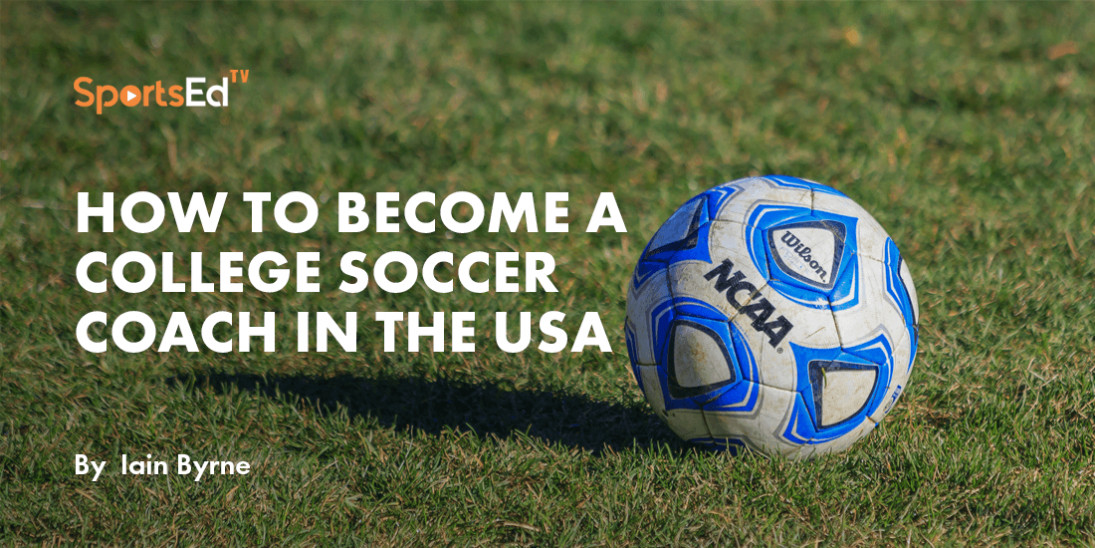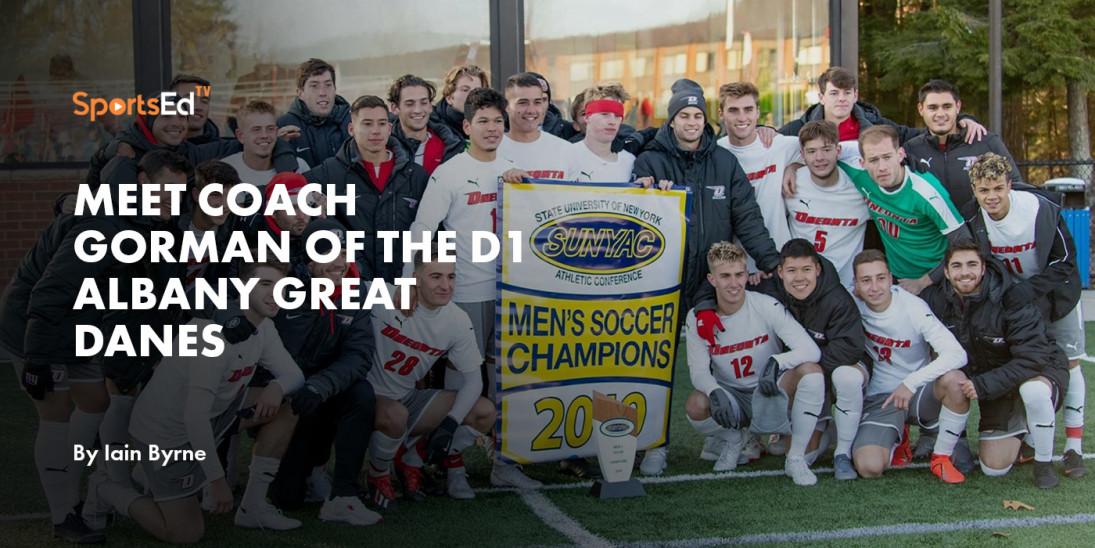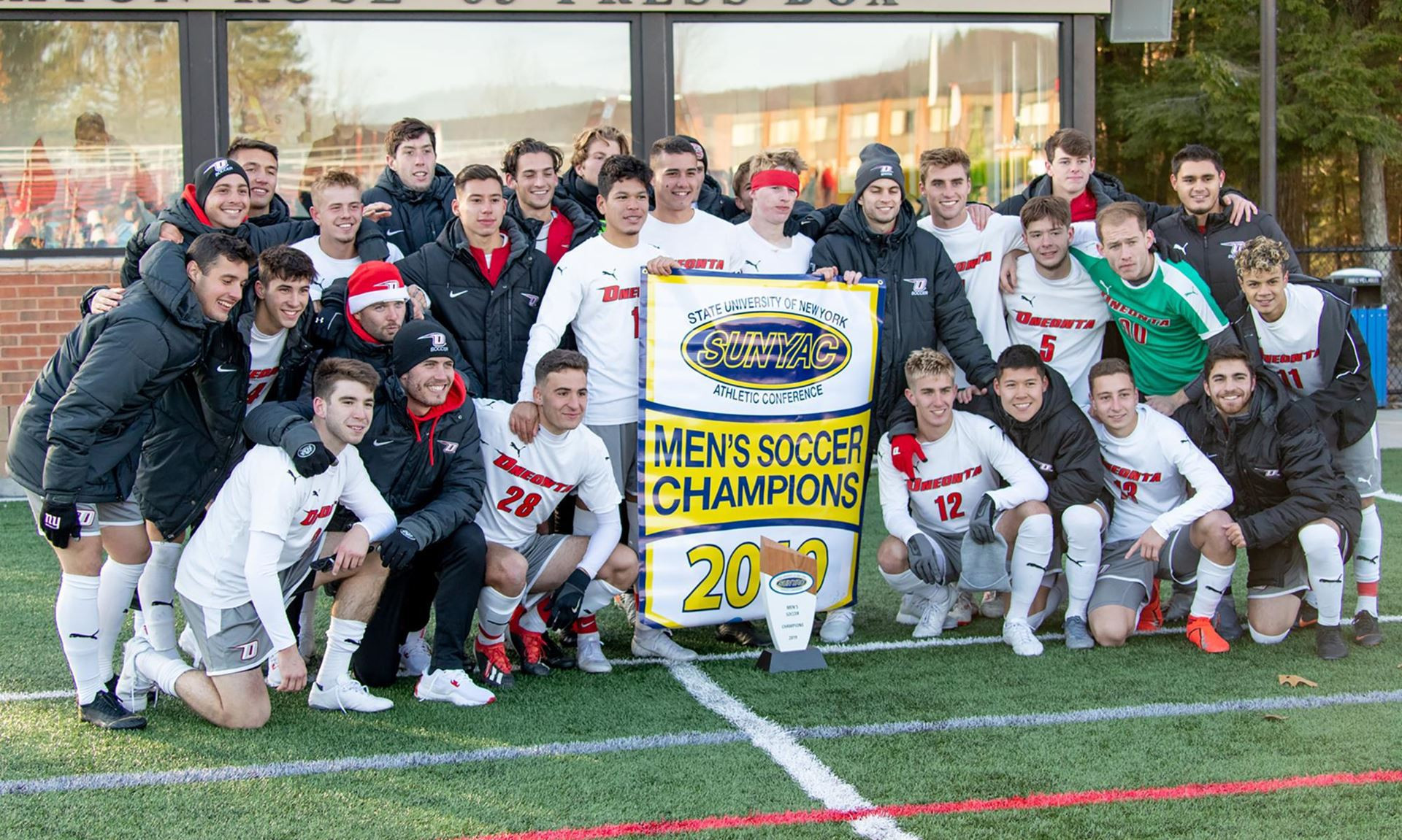Soccer
Welcome and thanks for visiting...

How To Become a College Soccer Coach in The USA

For a limited time only, join SportsEdTV Premium for free!
1. Sign up to join our Soccer community
2. Select Upgrade
3. Enter Promo Code: S973MdhZ
4. Access our 100s of free resources to help you improve
Hello to all you future Lionel Messi’s, and Jurgen Klopp wannabes:
I am often approached by young players who ask my advice on becoming a college coach. I tell them that the market is extremely competitive, even for entry-level positions, and the pay can be average until you make it at the highest level. You are going to find that top jobs that pay well are rare. Most will be around $50,000 because the colleges know that there are 1000's of recent graduates who are all hungry for the low pay/long hour’s lifestyle that an entry level coaching position provides.
Coaching any sport at the college level does not make it easy to have a second job, although you will probably be coaching a club team and working summer camps. During the season, a coach can expect to work 12-14 hour days during the week preparing game plans, practice plans, and breaking down film. You have game days on Fridays/Saturdays, and then on Sundays you are there all day breaking down your game film and the films of the next opponent.
You also spend a lot of time travelling for recruiting and scouting at showcases and tournaments. You will be hosting recruits on campus, making recruiting trips to schools, and calling recruits for 2 hours every evening. During the offseason, you spend a lot of time with the strength and conditioning program, creating workouts and supervising the sessions.
The Dream….winning an NCAA National Championship

The typical path to become a full time college head coach is:
- Play college soccer
- Stay on as a volunteer or Graduate Assistant while you finish your graduate degree.
- Continue in this capacity for 2-5 years (working hard & living poor) until a full time position opens up.
Some coaches will do the first two steps - then coach high school for a couple of years, maybe as a head coach, have some success and then get hired at their alma mater or another school where their previous college experience makes them an attractive hire. Some very successful high school coaches make the leap to the college level. Making the leap from high school to the Division I level is rare, however, and usually it happens when the high school coach has set up a pipeline for talented recruits or has a previous relationship with the coach who is hiring.
The majority of college coaches find an entry-level position in a college program, work hard for many years building up their resumes and making contacts, and then finally landing their first head coaching position.
It helps to have connections in the coaching field who you can use as a reference. Head coaches know their job depends on success, so they will be looking to hire the best candidate as their assistants. Depending on the applicants, a head coach would opt for someone they know from working camps, recruiting, or from playing or coaching together – and preferably someone with college experience!
The best advice I have is you have got to network. You must promote yourself every opportunity that you have, be that in your cover letter, in your resume, in your portfolio, and when you interact with other coaches. There is a way to do it tactfully without coming off as brash or arrogant. You have to walk that fine line without stepping over it.
Look at the career bios of some of the most successful college coaches in the business today and you will see it was a process and did not happen overnight. But they also had connections to get them in at the college level, whether they were a former player or not.
Many colleges will hire volunteer coaches who come and help around their primary job. It is a good way to get into college coaching and can lead to future employment, while at the same time providing a small salary in addition to your regular job.
Many small colleges can provide opportunities for coaches to gain coaching experience. The lower levels of college--D3, D2, NAIA--are sometimes the easiest to get into because those schools don't have large budgets for coaching salaries. Therefore, they are always looking for talented younger coaches who will not break the bank! That is the easiest way to get your foot in the door. Moreover, it does not matter how good or bad the program is……..it is a college experience.
My advice is to get in at a nearby college at whatever level you can, make good contacts, promote yourself, go to clinics and camps, network with as many other coaches as possible, talk to everyone, and apply for lots of positions…..
….And After Winning a College National Championship…..who knows what’s in your Future!

QUESTIONS
I would be happy to answer questions you have about college soccer in the USA……Shoot straight to iain.byrne@oneonta.edu





